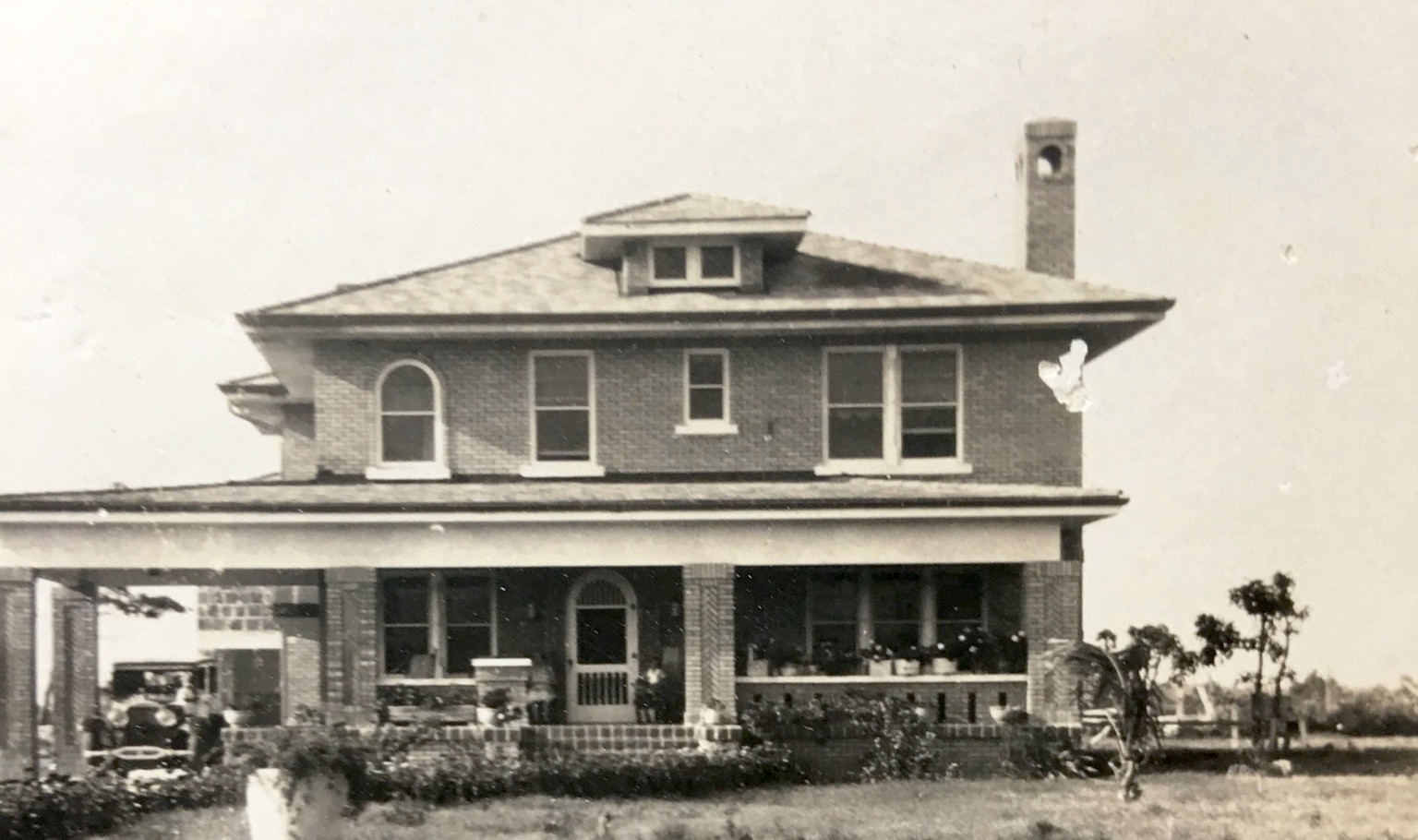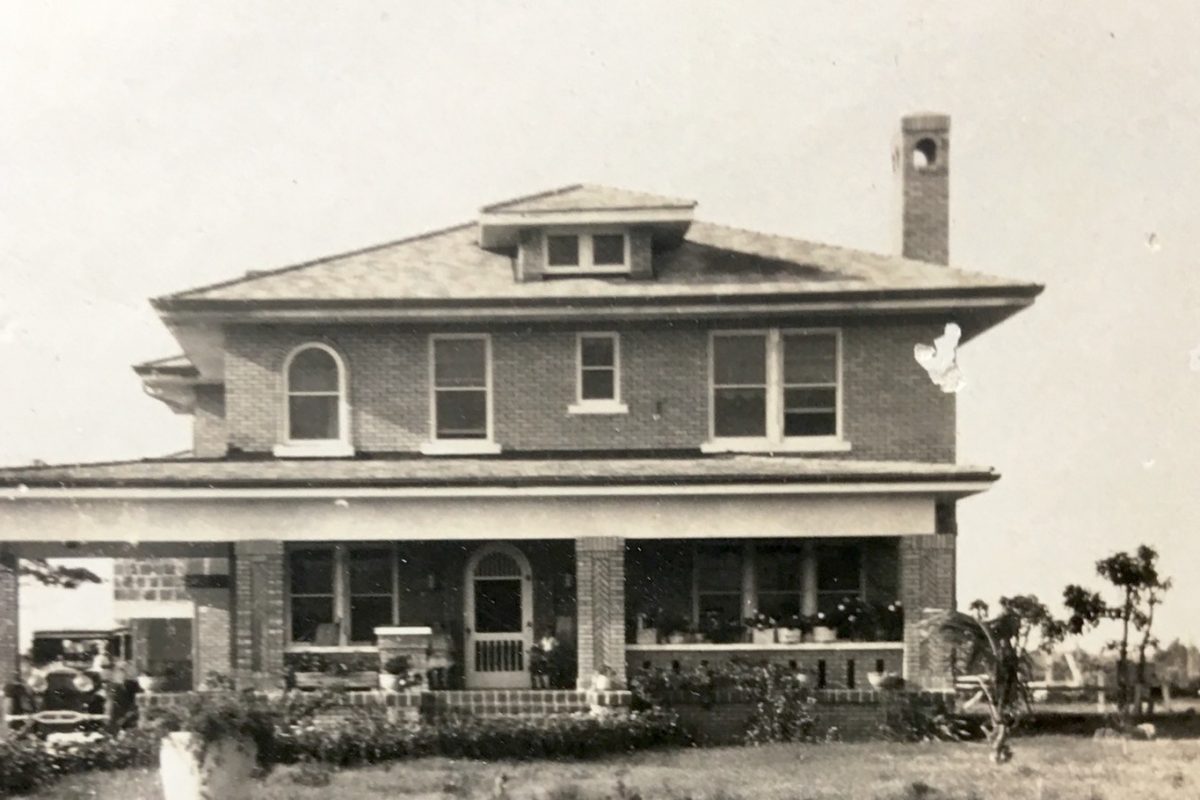Cars will be ordered off the street and traffic signals will be swung out of the way when a nearly 100-year-old house is dug out of the ground, cranked up onto a flatbed and rolled to a new spot in Pompano Beach early next year.
 The city’s redevelopment agency is spending millions of dollars to preserve history by renovating the house and the park it’ll soon call home. The house, linked to one of the city’s farming pioneers, will become a restaurant.
The city’s redevelopment agency is spending millions of dollars to preserve history by renovating the house and the park it’ll soon call home. The house, linked to one of the city’s farming pioneers, will become a restaurant.
Cindy Peters is the oldest granddaughter of the house’s original owner, Robert “Bob” McNab. “Of course I’m so sad,” she said of the move. “But life changes.”
Long ago, the land that would become Pompano Beach was settled by farmers who would haul their beans, peppers and eggplant to Flagler Avenue just north of Atlantic Boulevard, where trains stopped.
McNab and his older brother, William “Harry” McNab, moved to Pompano Beach in 1898, and they, too, were farmers who focused on watermelon, peppers and beans, Peters said. The McNab brothers built homes across the street from each other, using mustard-colored brick imported from Alabama.
Bob McNab’s house, known these days as the McNab House, has been a fixture on the south side of Atlantic Boulevard since 1926.
The home stayed in the family as the decades went by: Bob McNab’s oldest granddaughter and her husband moved out just last year when the land was sold.
McNab’s granddaughters sold several parcels of land for more than $6.9 million to a developer who plans on building Atlantic One. The project will have retail shops, and 280 rental apartments and 28 townhouses.
The McNab House was going to be demolished, but city officials balked at the idea. “If we don’t do something, there is no history,” said Nguyen Tran, Pompano Beach’s Community Redevelopment Agency director.
The city’s inspiration to preserve the home as a restaurant came from Dada, a historic house that was turned into a Delray Beach eatery.
“You can’t recreate that sort of feel,” Tran said of the historical significance.
Now, planning for the McNab House’s next chapter begins.
The house will be rolled along at 6 mph throughout an entire day to inch the five blocks to McNab Park as its final resting spot. At least two traffic poles will need to be “swung” out of the way. The cost to the Community Redevelopment Agency for the move is expected to be between $350,000 to $400,000.
Three trees, including a Haden mango tree, will be relocated, too. The McNabs were known to have grown scores of mango trees back in the day.
The six-bedroom home — and the stand-alone two-story garage — will be moved to Robert McNab Park. It’ll be a sort of homecoming where the city will contract with a restaurant owner to run it.
The home will need to be renovated to turn it into a restaurant with indoor and outdoor seating, a ramp for wheelchair access, an elevator and handicapped-accessible bathrooms. Some office space at McNab Park likely will be converted into the kitchen area, and food storage space. The CRA’s budget to renovate is $2.7 million. The two-story garage could become a wine bar or coffee shop, Tran said.
Harry McNab’s house, at 1735 E. Atlantic Blvd. on the north side of the street, was sold long ago by the McNab family and became a law office, and most recently became a private school.
PHOTOS: See South Florida cities historic photos from Miami to Delray Beach »
Harry McNab died in 1956, and his brother died two years later. Today, McNab Road bears the family name, as does McNab Elementary School in Pompano Beach.
Cindy Peters and her husband still are packing the last of their belongings. The McNab family has already planned to spend holiday dinners at the new restaurant.
“Everything changes,” Peters said. “And we got older and it didn’t make sense for us to stay there any longer.”
Tran said the McNab House move is expected in late January, deliberately after the winter holidays to avoid disruption.
“We can’t stop redevelopment efforts,” he said, but the city can “help shape it.”
Taken from https://www.sun-sentinel.com – Lisa J. Huriash








